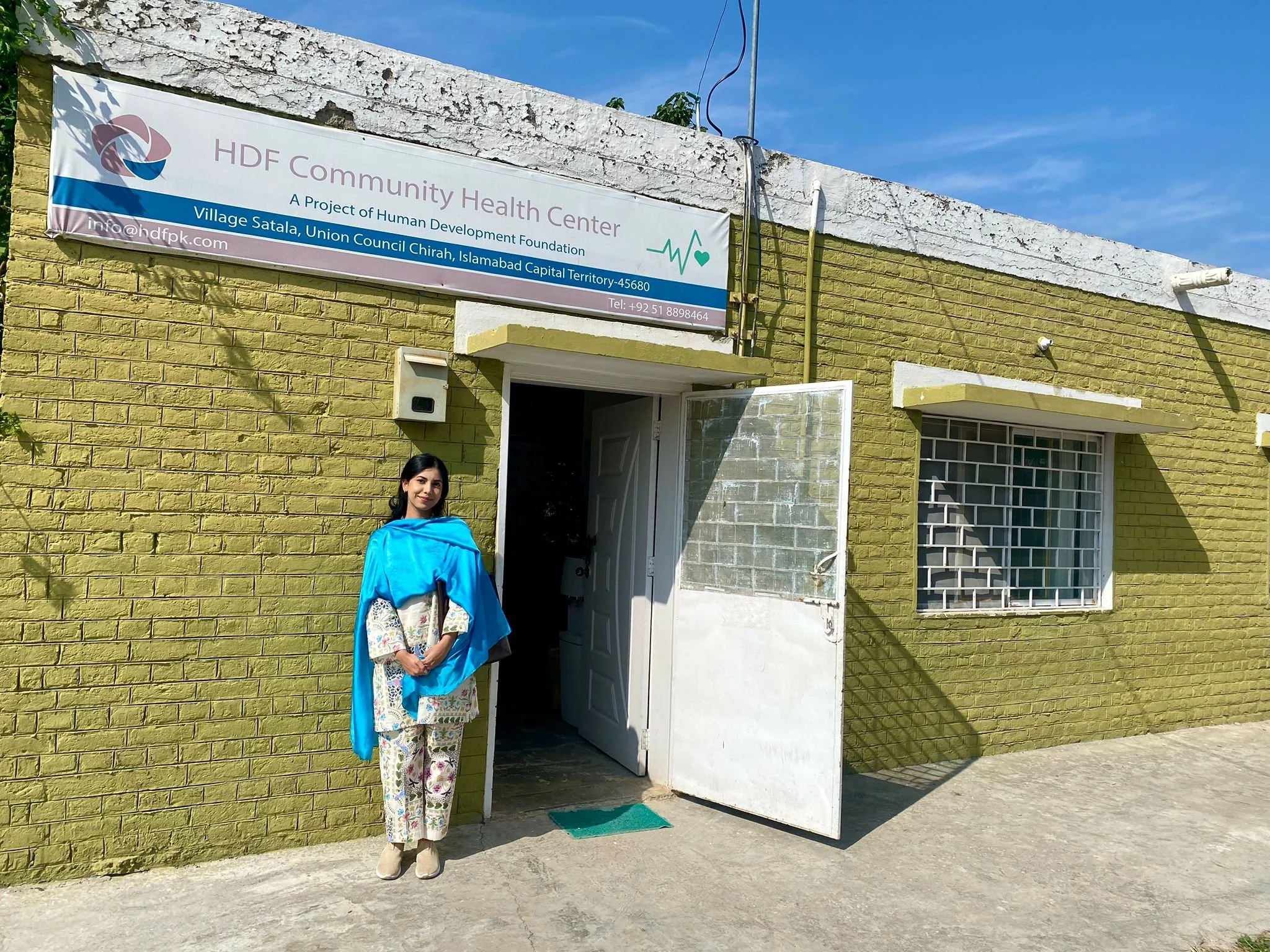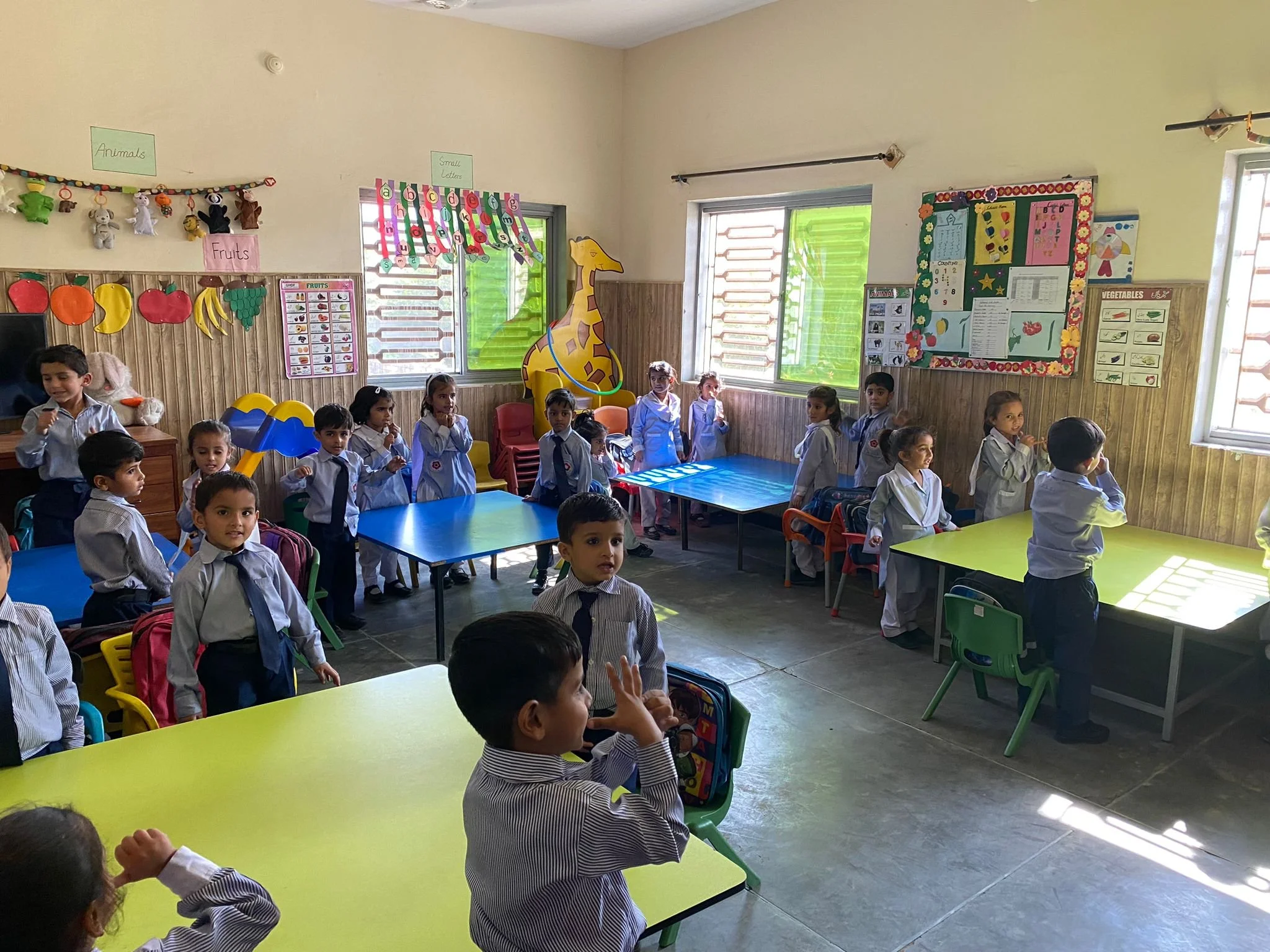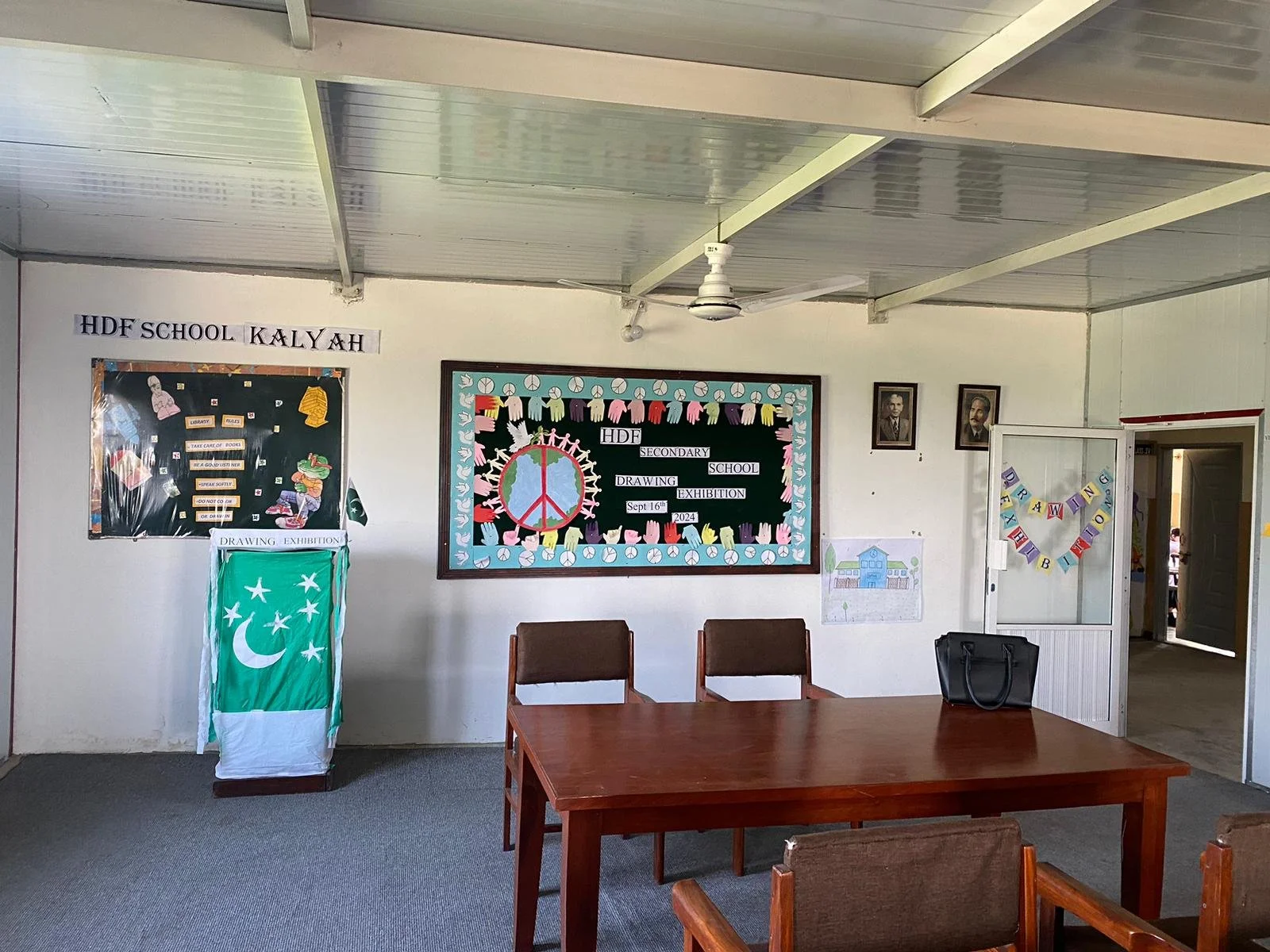APF + Human Development Foundation (HDF) Education and Healthcare Fellowship in Islamabad
Written by APF + Human Development Foundation Pakistan Fellow (2024) Zahra Hassan
My From October to November 2024, I had the opportunity to participate in APF’s Pakistan Fellowship program, working with their partner organization, Human Development Foundation (HDF). According to UNICEF, Pakistan has the second-highest number of out-of-school children in the world, with 22.8 million children not attending school. Understandably, this tragedy is one of the biggest—if not the biggest, hindrances to Pakistan’s prosperity and development. HDF’s work is committed to transforming this reality by providing quality education to children in impoverished areas and helping individuals and communities from marginalized backgrounds become self-reliant through holistic development initiatives. I spent four weeks in HDFs’ education department in the Islamabad head office, gaining valuable insights into the organization’s profound impact on Pakistan’s education sector and its myriad challenges. My time there allowed me to witness firsthand the extensive efforts behind the establishment and operation of HDF’s 42 schools, which serve as lifelines for communities plagued by poverty and illiteracy. Beyond the statistics, the fellowship offered a profound understanding of the hurdles facing Pakistan’s education landscape, as well as the harsh reality imposed by limited resources.
The most meaningful moments of my fellowship were reading the stories of HDF students from diverse regions, who, in their own words, expressed how their lives have been transformed by HDF’s schools and scholarships. Many of these children, coming from underprivileged backgrounds and sometimes working as laborers themselves, are a living testament to the life-altering power of education. Learning how lives—and by extension, communities—are uplifted through access to quality education was deeply moving. I was also introduced to HDFs’ curriculum and the innovative programs they have implemented to foster intellectual, creative, and personal growth among students. Initiatives like spelling bees, essay-writing contests, and drawing competitions reflect HDF’s commitment to providing an enriching educational experience for all, regardless of their socioeconomic background. This opportunity also allowed me to contribute ideas on potential cognitive and creative activities and strategies to further enhance learning opportunities across HDF schools.
Zahra Hassan
My involvement…was a deeply moving and inspiring experience. Having the opportunity to understand in depth how holistically HDF provides for marginalized and disadvantaged communities was transformative. Now, I have a much deeper sense of commitment to serving the underprivileged and a greater knowledge of how to do that constructively and in a lasting way.
The highlight of my fellowship, however, was seeing the work of HDF in action through a visit to two HDF establishments. First, I took a trip to the outskirts of Islamabad, where HDF runs its primary-secondary Kalya school. About forty minutes away from the city center, the school sits in an idyllic village located in a hill-side sector aptly called Eden. The three-story building serves approximately 300 students, beginning from nursery level and going upwards to grade ten. Welcomed by the dedicated principal, Ms. Sidra, we were given a tour and invited to sit in on some classes, ranging from pre-k to fourth grade. Witnessing the enthusiasm of these children to learn, their willingness to engage, and the joy and sense of purpose they derived from just being in that environment was heartwarming. Despite their limited resources, they were charged with ambition, excitement, and a thirst for knowledge. Their commentary in the classroom and drawings decorating the library exhibited a zest for life and scholarship that was both inspiring and emotional, reminding me of the moral obligation upon us to remove barriers to basic rights and equality in society. Later, a private sit-down conversation with Principal Sidra rendered an insightful discussion on the challenges the school faces and the immense impact that additional support could bring, as well as the importance of integrating serious conversations on student safety and wellbeing—a reflection of HDF’s commitment to holistic development.
We also had the chance to visit the adjacent HDF community health center, which provides medical services to the surrounding area. While modest in size, it is a well-equipped facility with a waiting room, examination room, treatment room, and well-stocked mini-pharmacy. The on-site doctor offered us insights into the issues facing the local community and how HDF’s training has equipped them to navigate those challenges through specialized care and awareness campaigns. She went on to tell us about their initiatives for ensuring health-conscious decisions are learned and practiced, including cancer screenings, house visits, and sharing educational resources, and their measures that support women’s health—particularly around breast cancer awareness, exclusive breastfeeding, and family planning. Witnessing the various efforts they so wholeheartedly commit to was educational and inspirational, and a powerful reminder of the critical need for considerate, accessible healthcare.
Overall, my involvement working both behind the scenes and seeing the work on the ground was a deeply moving and inspiring experience. Having the opportunity to understand in depth how holistically HDF provides for marginalized and disadvantaged communities was transformative. Now, I have a much deeper sense of commitment to serving the underprivileged and a greater knowledge of how to do that constructively and in a lasting way. There is still a long way to go for Pakistan to fully commit to the educational future of its marginalized children, but through funding and supporting organizations like HDF—whose dedication to and diligence in the work they do is remarkable, monumental change can be created. Through considerate, diligent efforts, village by village, Pakistan’s potential can be transformed through the power of education and self-reliance. Ultimately, my time spent working with HDF has left an indelible impact, and I strongly encourage other young Pakistanis who may be interested in such development work to consider participating in a fellowship with APF + HDF—it will most certainly be a deeply inspiring experience.
I’d like to give special thanks to Dr. Atiya Khan, Dr. Nasar Qureshi, Henry C. Alphin, Ms. Samman Islam, Mr. Zulfiqar Ali, Mr. Tayib Jan, Ms. Ayesha Muhammad, and Ms. Khansa Tariq, all individuals who facilitated the fellowship and took me under their wing in Islamabad. This would not have been possible without you!






